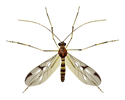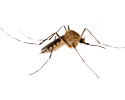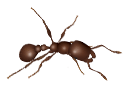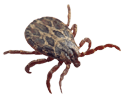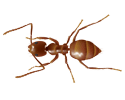Best Practices for Residential Property Managers: Pest Control
Controlling pests in multi-unit housing can be incredibly difficult due to the number of people living in close proximity. This leads to an increased likelihood of pests like cockroaches, mice, rats and bed bugs. As a property manager, it is your job to keep these issues under control. Not only are pests unsightly and a nuisance to residents, they can also be potentially dangerous. Certain types of pests, such as mice or cockroaches, can spread bacteria and microbes that cause contamination or vector-borne disease. As a residential property manager, it is your job to keep these issues under control. Here are a few preventative measures you can take and some tips on how your staff can be involved.
Prevention
- Reduce access to/through buildings
- Minimize pest traffic in your building by sealing up any pest super highways. This includes fixing broken windows, doors and screens; ensuring there are no gaps larger than the diameter of a pencil around your structure; and plugging any openings, gaps or cracks you do find (including those where wires and cables enter your building) to keep pests out.
- Reduce water sources
- Standing water attracts bugs like mosquitoes, rats, and ants. Make sure leaky pipes and faucets are fixed, clear out roof drains so water can flow freely, eliminate debris in gutters and insulate pipes in areas that may be prone to condensation.
- Manage garbage/recycling
- Store dumpsters as far from the building as possible. In addition, make sure there are an adequate number of dumpsters at each building so that garbage doesn’t begin to overflow. Make sure spills are cleaned up promptly and that trash rooms are regularly inspected.
Enlist Your Staff and Residents
- Maintenance Staff
- Your maintenance staff has a crucial role in pest management. Since they must maintain both the building’s interior and exterior structures – which can often lead to pest intrusion if broken – they are your first line of defense. Make sure they are watching for any structural conditions that may encourage pests and correcting those issues they do find promptly.
- Housekeeping
- If you have a housekeeping staff for common areas, make sure they know to report sanitation or structural issues they come across. They may also notice signs of pests during their work, such as rodent droppings or wear/gnaw marks, that should be promptly reported.
- Residents
- Educate residents on the types of pests that are common in multi-unit housing, what housekeeping expectations exist and the steps they should take if they notice pests, signs of pests, leaky pipes or mold and around the building. Finally, follow-through by enforcing lease provisions involving sanitation and trash removal.
- An Integrated Pest Management (IPM) professional
- Maintaining a pest free building can be incredibly difficult, especially if you are beyond preventative measures and have a full blown infestation. Enlisting the help of an IPM professional can make a huge difference. They will identify the root cause of a pest problem, recommend different solutions, apply pesticides and other control measures safely and within the confines of local and state regulations, and routinely monitor for pests.
IPM for Property Management
If you are considering using pesticides to alleviate a pest problem, do not try and use them yourself. It is essential to have an experience IPM professional come in and do this so as not to harm tenants, staff, or pets.
At Holder’s, we safeguard your property with a new level of protection with our BrandGuard solutions that include protection against flies, rodents, bed bugs, cockroaches, ants and many more common pests. Contact us for more information!
Best Practices for Residential Property Managers: Pest Control Serving
Houston
Beaumont | Conroe | Spring | Pasadena | The Woodlands | Richmond | Galveston
Baytown | Bryan | Cleveland | College Station | Cypress | Pearland | Sugar Land
Home » Best Practices for Residential Property Managers: Pest Control

